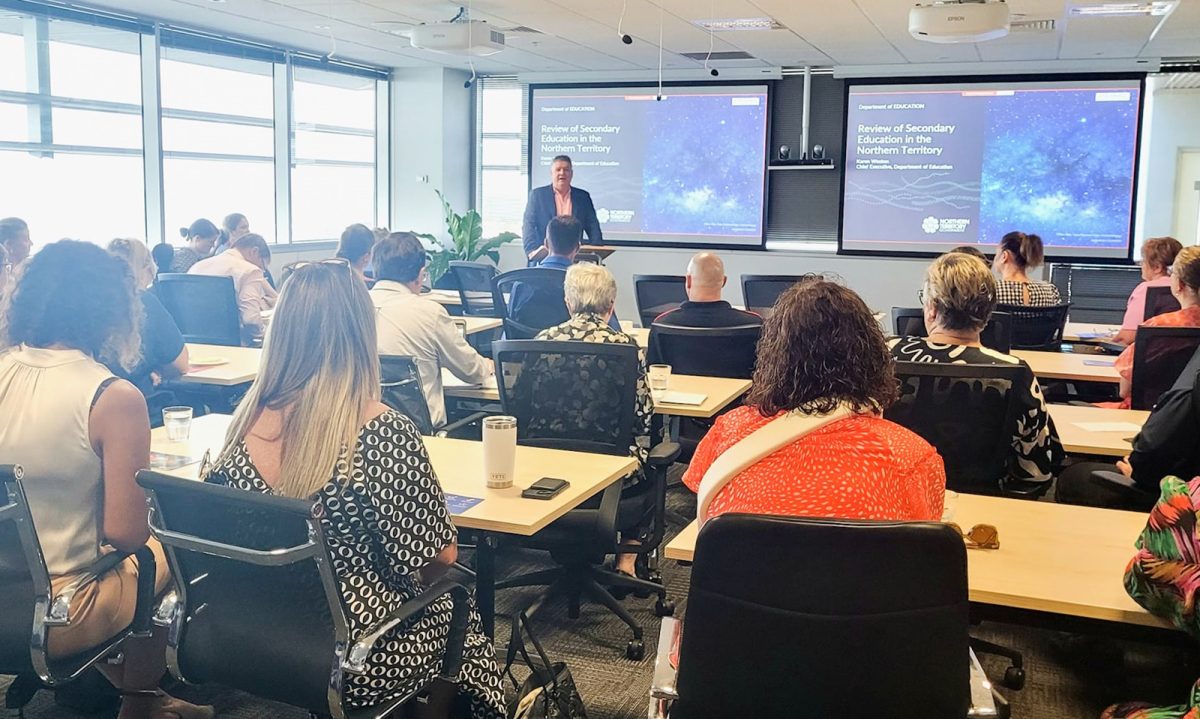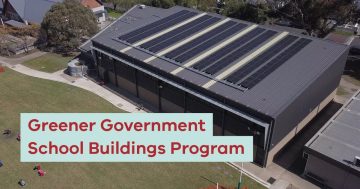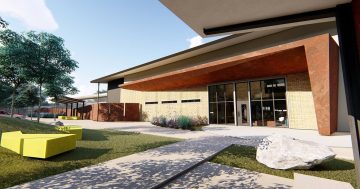
NT Education Minister Mark Monaghan announces the release of the Review of Secondary Education in the Northern Territory. Photo: Mark Monaghan Facebook.
All 15 recommendations from a review into secondary education in the Northern Territory will be implemented by the Territory Government.
Conducted by Deloitte and Charles Darwin University, the final 222-page report from the review was tabled in December 2023. It was commissioned to support the Territory Department of Education’s goal to be the most improving education system in Australia, and to support its commitment to a strong and equitable public education system where every child has the opportunity to engage, grow and achieve.
The review was conducted between November 2022 and October 2023. It adopted a multi-phase and mixed-methods approach involving desktop evidence review, research and analysis of policy documentation and analysis of data.
It also undertook stakeholder engagement with schools across all regions in the Northern Territory, policymakers, representatives of peak body organisations, other jurisdictions (nationally and internationally), and subject matter experts.
Key lines of inquiry are grouped under five domains:
- Domain 1: Recognition of learning, exploring how the system can recognise and certify a range of student learning success and capabilities.
- Domain 2: Transitions between and beyond school, exploring the design and provision of flexible and intentional pathways to enable students’ success in further study, employment or training.
- Domain 3: Learning access and design, exploring the provision of equitable and flexible access and delivery of learning through delivery modes and courses.
- Domain 4: Partnerships and engagement, exploring avenues to strengthen partnerships and engagement to enable successful delivery and student outcomes.
- Domain 5: System of supports, exploring the foundations of support required to enable successful delivery of secondary education, and ensuring culturally safe and supportive learning environments and experiences for students.
The 15 recommendations made by the review were grouped into the five above-listed domains.
Standouts include an expansion of the current systems of credentialling and recognition of learning in the Territory, the implementation of a literacy and numeracy guarantee for all NT Government school students, the development of a system-wide Pathways Plan, and a recommendation to move away from the current model of middle schooling towards comprehensive secondary schools over time.
Other recommendations include the continual development of the department’s existing curriculum reforms and rolling out meaningful contextualised and continuous curriculum with a focus on the middle years of schooling, and enhancing and embedding the systemic role of distance education schools.
The government recognised that, due to the Territory’s diverse needs, more pathways to work opportunities within the secondary education system had been identified as a core recommendation of the review. To this end, it says it will accomplish this through more training options within schools in partnership with local communities, industry, government and non-government organisations.
Territory Chief Minister Eva Lawler said education was crucial for Territory kids to reach their potential.
“We want every young Territorian to be ready for work and their future careers,” she said.
“This secondary review is about providing the support and tools our teachers, students and school communities need to build a strong workforce of the future and how to give kids pathways to start their dream career – no matter where they live.
“Children across the Territory need to know they can be whatever they choose to be – learning a trade and starting a business, working in their own communities, or doing further study at universities like CDU in Darwin.”
Minister for Education Mark Monaghan said every child, no matter where they lived, deserved the best quality education.
“Through this review we aim to improve engagement and education outcomes and provide pathways for all students to succeed,” he said.
“A key focus is preparing Territory students for jobs of the future, by providing innovative education opportunities with a focus on employment skills,” he added.
“There will be no immediate change to the current secondary schooling structure; all changes will be evidence based, planned and considered.”
The review can be viewed online.











